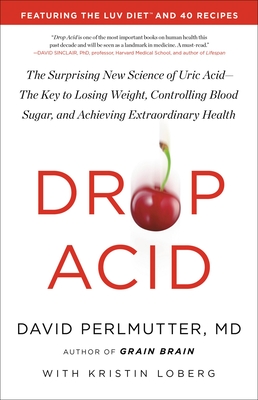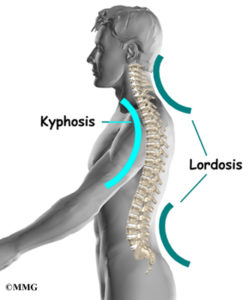Drop Acid is the latest book by Dr. David Perlmutter, MD. The secondary title is quite a mouthful at: The Surprising New Science of Uric Acid- The Key to Losing Weight, Controlling Blood Sugar, and Achieving Extraordinary Health.
Like usual I had heard a few interviews on the podcast circuit promoting this new book and didn’t think too much about reading it, and honestly wasn’t too interested in Uric acid. When a trusted friend told me that it was a good book, I thought, sure, I’ll give it a try as I did enjoy some of his previous books like Grain Brain.
Drop Acid is an interesting look into the effects of excess uric acid on the human body. The book is full of scientific references (which you all know I appreciate) but it is told in a conversational tone that is easy to understand, much like his previous books.
The book is told in two parts. The first part supports the role uric acid plays in human metabolism. The second part is all about how to lower uric acid using the author’s LUV (Lower Uric Values) diet and gives the reader a three-week diet plan as well as outlying the foods to avoid, and the foods and supplements that help lower uric acid levels.
I found that this book gave me a good background of the role of uric acid, and I now fully appreciate why my functional medicine friends are always bring it up. I’m sorry I didn’t listen sooner.
I will attempt to summarize the science as I feel it’s important to understand why elevated uric acid is such a health problem for the majority of people.
For centuries elevated uric acid was considered only a medical problem that causes gout and kidney stones. That’s because the medical industry chose to ignore (where have I seen that recently?) the peer-reviewed findings of a doctor in 1892 who clearly showed that elevated uric acid drives the inflammatory signal in our bodies and will cause the metabolic syndrome behind all our chronic diseases, including Type 2 diabetes, obesity, heart disease, arthritis, cancer, and brain disorders that include depression, dementia and Alzheimer’s.
Fortunately in this century the scientists have been busily studying elevated uric acid and their exciting findings are now all over the leading medical journals. However, even the author acknowledges that there is still more to learn.
Elevated uric acid diminishes the nitric oxide in our bodies and that starts all the problems because nitric oxide is extremely crucial to our entire health by oxygenating everything in our bodies.
There are certain foods that support elimination of uric acid buildup in our livers and certain foods that contribute to the buildup, the latter which begins with processed fructose in junk drink and food, continues with purine rich seafood and meats and ends with alcohol, salt and yeast.
I’d really never considered uric acid at all except as it pertained to gout, and I have never had a family member or client who has suffered from this. I had no idea that there was so much evidence pertaining to uric acid and its relationship to metabolic syndrome, hypertension, high cholesterol, and really morbidity and mortality generally.
I’ve started asking my clients to have their primary care providers test for uric acid and I analyze based on the suggested reference range in the book and not the standard ranges provided. I went back and checked 8 years of data, and no one in our family has had our uric acid tested, so it will be requested on our next blood tests.
Based on the recommendations in the book, I am pretty confident that my personal uric acid levels will be in the healthy range based upon my dietary and other lifestyle choices.
Full disclosure, I did not try the LUV diet, so I cannot give a first-hand account of how it works. I think if you understand the concepts, you can determine your own path to meet the same objectives. In a mass published book such as this, the dietary information has to be pretty vanilla, whereas, when I am working with a client to lower their uric acid levels or any other metabolic metric, I would take many things into consideration, like genetics, culture, ethnicity and lifestyle factors.
I do recommend this book to anyone who wants to try to understand the effects of uric acid on the body. I will be lending my copy out to a few people.
There is no such thing as a magic pill but the suggestions in this book are sound and sensible for anyone who is wanting to be proactive about long term health.
Of course, we can’t all learn and be motivated to take action from reading a book, so if you want to work with a professional, to be accountable, let’s have a conversation.




